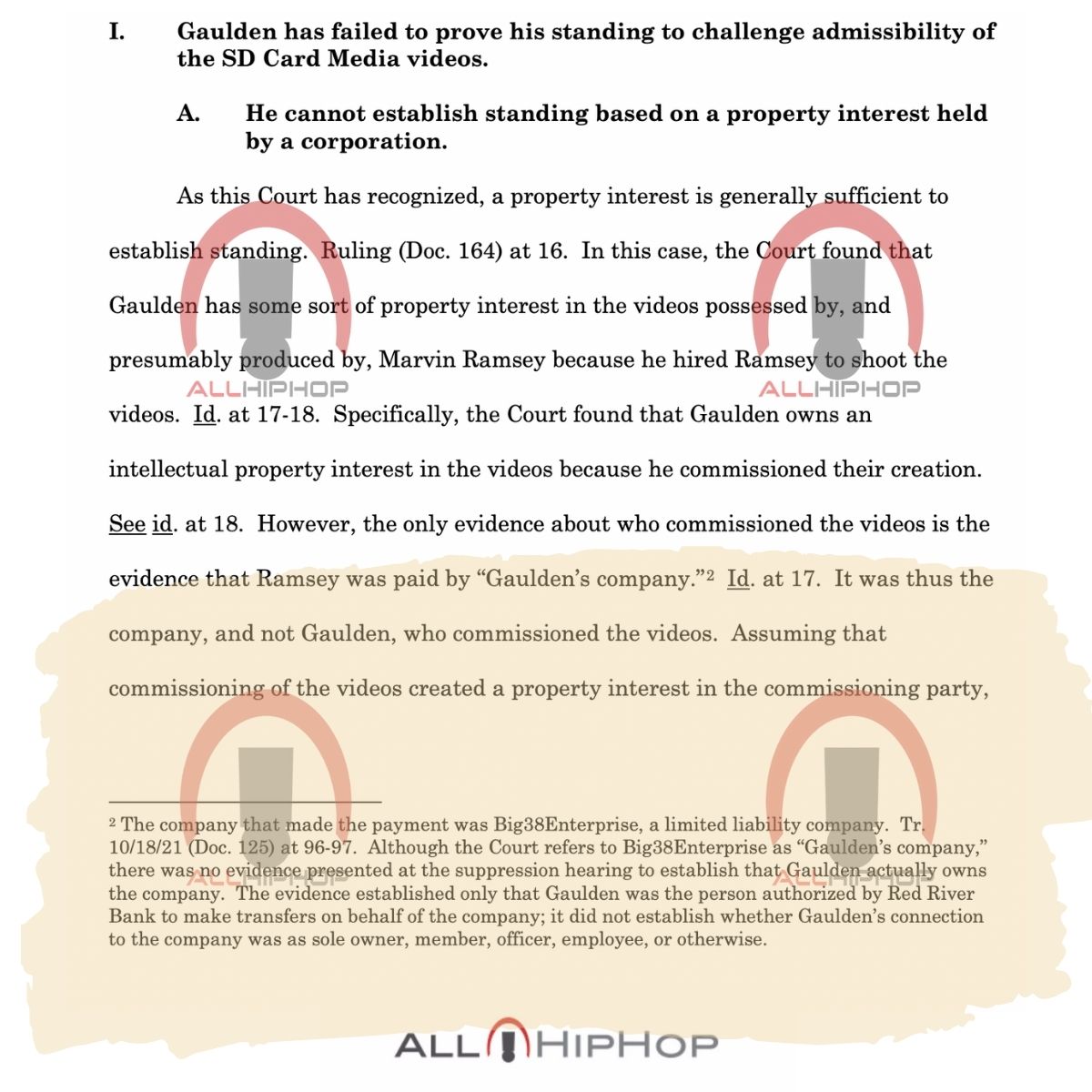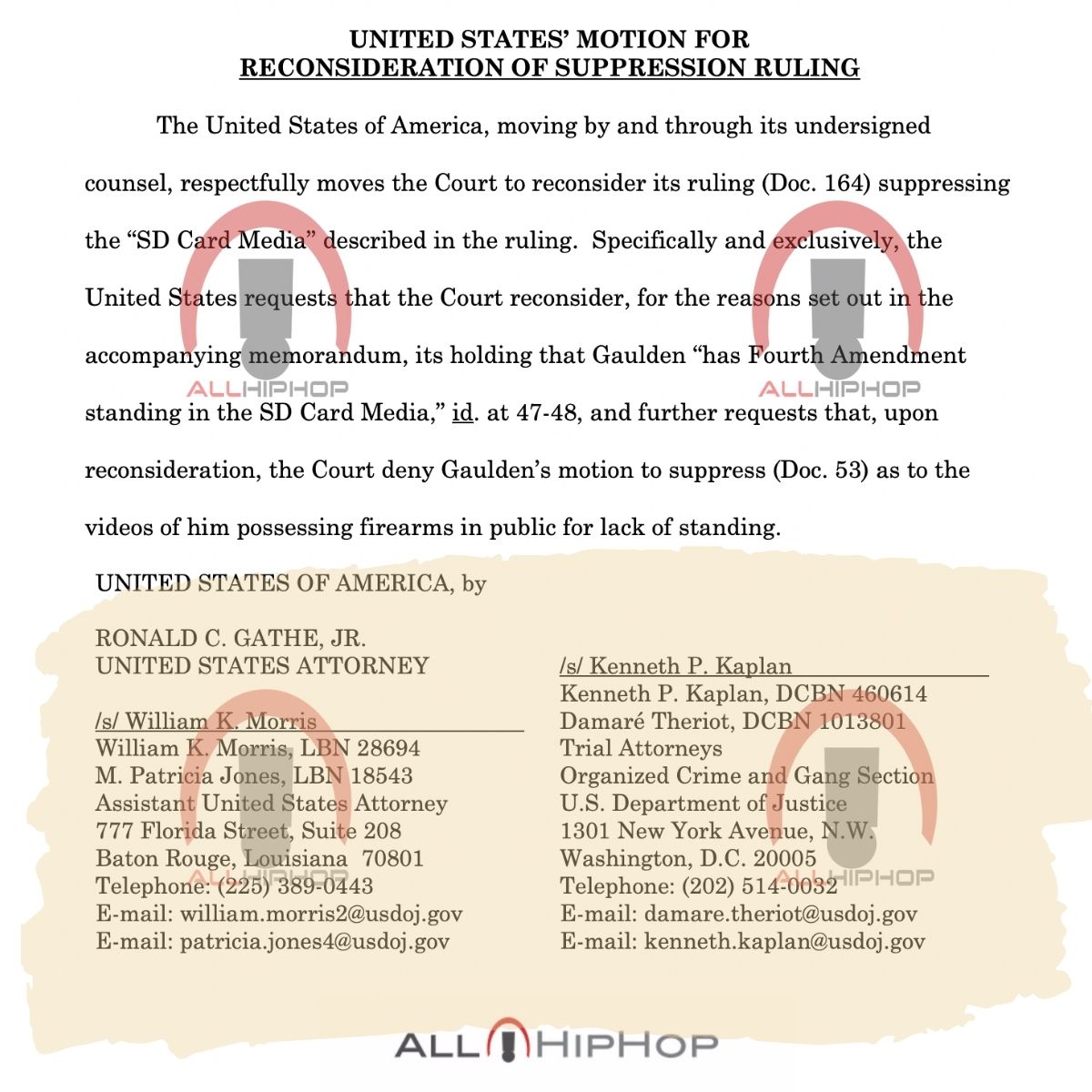Prosecutors seek to overturn a court ruling suppressing video footage of NBA YoungBoy in his ongoing gun case.
According to documents obtained by AllHipHop, prosecutors say they didn’t bring up two key points in the proceedings of the original ruling. The government believes these arguments invalidate NBA YoungBoy’s case for suppressing footage, which allegedly shows in him in possession of a firearm.
“[Kentrell] Gaulden has no Fourth Amendment property interest in the videos as they were commissioned by a limited liability company named Big38Enterprise,” prosecutors argue. “Gaulden has no Fourth Amendment privacy interest in the videos because they depict conduct exposed to the public. Because Gaulden does not have a protected property or privacy interest in the videos, he has no standing to compel the extreme remedy of suppression. This Court should thus reconsider its ruling—despite the United States’ failure to adequately bring these issues to the Court’s attention before issuance of the ruling—to avoid a miscarriage of justice.”

A court previously ruled NBA YoungBoy maintains intellectual property interest in the footage because he commissioned the videos. But the prosecution claims that’s not the case.
“The only evidence about who commissioned the videos is the evidence that [Marvin] Ramsey was paid by ‘Gaulden’s company,’” prosecutors say. “It was thus the company, and not Gaulden, who commissioned the videos. Assuming that commissioning of the videos created a property interest in the commissioning party, the property interest here vested in the corporation, not in Gaulden.”
Prosecutors cite Louisiana law, which says a corporation is a separate entity from its shareholders. Under the law, shareholder interests don’t equate to ownership of the company’s assets.
“Gaulden, therefore, has no property interest in the videos,” the feds contend. “Neither can Gaulden assert the corporation’s property interest as a basis for standing. In its ruling, the Court concluded that it doesn’t matter whether the property interest belongs to the corporation or to Gaulden personally. But it does. As explained by the Fifth Circuit, the ‘normal rule’ is that a corporation’s owners do not have standing to challenge seizure of the corporation’s property … Simply stated, Gaulden cannot establish standing based on his company’s property interest in the videos.”

The prosecution also counters one of NBA YoungBoy’s original arguments. The government claims it won’t be violating his privacy even though the hard drive may contain “intimate footage” of NBA YoungBoy and his family.
“Despite having presented no evidence of the videos’ content, Gaulden alleges that the seized videos contain ‘intimate footage of Gaulden with his family,” the feds note. “However, as described in the United States’ original opposition and never disputed by Gaulden, the only videos that the United States intends to offer as evidence at trial do not depict such private matters. Rather, they depict Gaulden engaging in criminal activity—i.e., possessing firearms—in public.”
Prosecutors conclude, “The compelling evidence of Gaulden’s brazen criminal activity should not be excluded from trial because Gaulden’s personal rights were not violated by the searches and seizures at issue. It was Gaulden’s burden to prove standing, and he did not do so. The video evidence should therefore be admitted at trial.”
